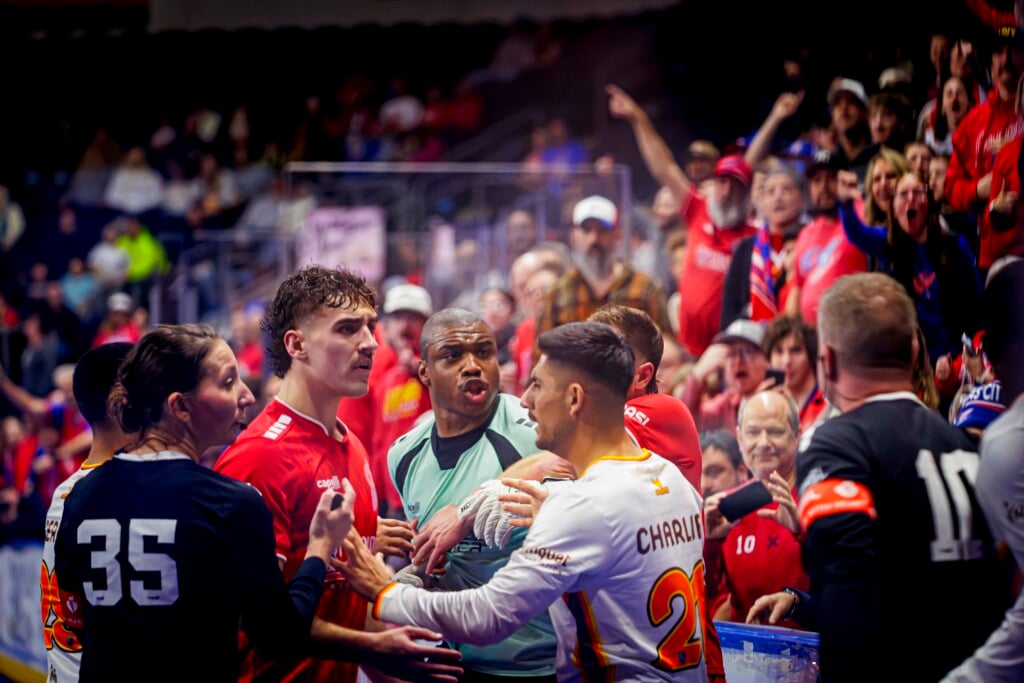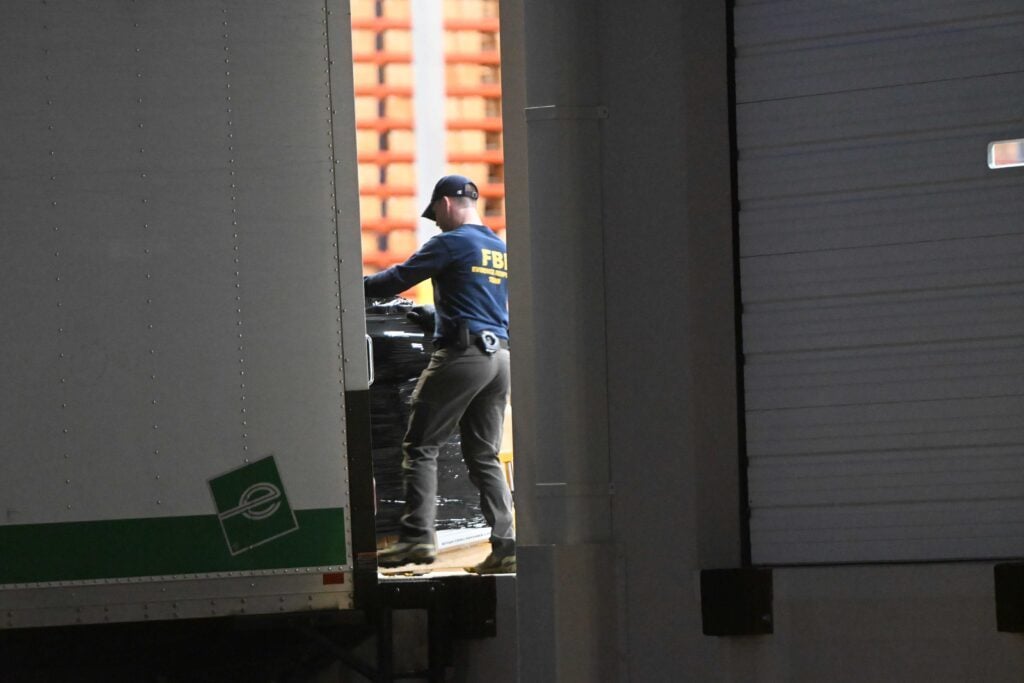Joey Who?

If it weren’t for the money, the day would have been perfect.
It was the kind of celebration Joey Arena’s parents would be able to tell him about when he was old enough to understand the way a community supported him, holding a “life party” for a boy who’d had heart surgery five weeks earlier and was doing great.
On a scorching summer day last year, thousands of people stopped by the Wal-Mart Supercenter parking lot in Shawnee to dance until they dropped, to hula hoop, ogle fancy cars, eat, drink and buy $10 T-shirts.
Congressman Dennis Moore came by to shake a few hands. The Sanyo blimp flew overhead. Radio station KRBZ 96.5 broadcast live from the event to conclude the promos it had been running for weeks, about the boy whose face was on T-shirts that read “We give because we care.”
Had it just been a party to raise awareness about Joey’s heart condition, Frank Arena would be happy. But there was money involved, thousands of dollars that no one can account for.
A Wal-Mart employee who helped organize the party estimates that she collected $15,000 to $20,000. An attorney working on behalf of the Arenas guesses it was more than $60,000.
Whatever the sum, partygoers and sponsors donated all of it in Joey’s name. But none of it has come to Joey.
Fortunately for the Arena family, medical expenses won’t bankrupt them. Though doctors had told them their newborn son’s heart surgery might cost half a million dollars, the final bill was less than $100,000, thanks to Joey’s quick recovery. The family’s insurance, which they feared would top out its coverage at $50,000, picked up all but $3,700.
But Frank and Amy Arena didn’t know any of that when they agreed to let their son be the focus of a parking-lot party last June.
The event was a big success for Wal-Mart, which drew thousands of people to its store. It made great radio for 96.5, which got to show the city it cared about children. And it created publicity and money for Children’s Miracle Network, which ultimately received close to $10,000 from that event and other fund-raisers last year at the Shawnee store.
Joey Arena was born February 20, 2001, an apparently perfect baby boy. Eight days later, doctors found a heart murmur. “At fifteen days, we find out it’s fatal,” Frank Arena says. Joey had Tetralogy of Fallot, a congenital heart defect. Without surgery, children generally die before they turn four. The horrific revelations came just as Arena was losing his job as a contractor for Xerox and around the time he and Amy were getting married.
In October 2001, Arena took a job with Wal-Mart. It wasn’t long before word got around that his baby turned blue when it cried and that the child needed a $500,000 surgical procedure.
“The employees at that store are the most giving people you’ll ever meet in your life,” says Bonnie King, who worked in the lawn and garden department. “We decided we wanted to raise some money for Joey.”
King mentioned the idea to Arena one day in the break room. They chose June 29 as Joey Arena Dance to Health Day.
On May 20, 2002, surgeons at Children’s Mercy Hospital opened Joey’s chest and patched his heart with a donated pulmonary artery and valve. Joey went home eight days later.
Meanwhile, King got a permit from the city of Shawnee to hold the party, and she contacted the Children’s Miracle Network, an independent charity to which Wal-Mart is a major contributor. Because Wal-Mart supported the Children’s Miracle Network and the charity supported Children’s Mercy Hospital, it seemed a natural match.
“Children’s Miracle Network became part of the deal from day one,” King says.
King went from door to door at nearby businesses, seeking sponsorships and support. Other employees started hitting up vendors making deliveries at the store. “Coca-Cola came and said, ‘How much Coke do you need?'” King recalls. “The bread people [asked], ‘How many buns do you need?’ ‘How much ice do you want?'”
Someone called 96.5 and challenged the station’s personalities to get involved and promote the event. They complied — and then some — staging a stunt with a guy called Salamander, who rode a bike and hitchhiked from Los Angeles to Kansas City in Joey’s honor. “He wore a green set of tights. He was all decked out in stupid clothes,” King says. “Wal-Mart drivers picked this kid up along the way. I do know this kid got money from drivers.”
“That’s when everything got out of hand,” Arena says. He was being accosted at the sports counter, spending more time updating customers on his son’s medical condition than stocking the shelves.
The in-store committee grew from three people to seventeen. And sponsors kept signing up. More than thirty businesses agreed to pay $300 or more to be on the T-shirts as official sponsors.
“About a week out was when I was starting to lose it,” Arena says. “They were trying to attach [Joey] to Wal-Mart, and that’s not what I wanted.”
The second week of June, King and the Arenas finally met face-to-face with a woman from the Children’s Miracle Network, who told them that none of the money being raised would go directly to Joey or his hospital bills. King says the woman told her that Joey was simply “the avenue to the money.”
The Kansas City-area Children’s Miracle Network doesn’t raise money for individuals, says Jan Murfield, who was named director of the organization last September. In 2002, the organization doled out $400,000 each to Children’s Mercy Hospital and the pediatric unit at KU Medical Center, letting the hospitals do whatever they wanted with the money. This year, Children’s Mercy is using it to help pay for a new children’s emergency room. In addition to the $800,000 it gave the hospitals, the Children’s Miracle Network spent $200,000 on administrative expenses and about $150,000 on fund-raising.
The organization was founded in 1983 by singer Marie Osmond and actor John Schneider. Since the first televised fund-raiser in Salt Lake City, the charitable group has established local groups to support 170 children’s hospitals across North America.
“God love them that they do that,” King says. “But they need to say, ‘Look, we do not help parents pay bills.'”
“I think it is apparent there was a misunderstanding,” Murfield says. “Our organization does not do fund-raising for direct patient care.”
What the organization does do is use a child’s picture to promote an event. “A person might call it a poster child,” Murfield says. “What it does is, it puts a face with a cause so people can see our organization helps children like this.”
But King says she didn’t organize a party for just any little boy. She did it for Joey, whose face and name were plastered everywhere. Still, King felt it was too late to cancel the event, so the misunderstandings continued.
Deanne Montgomery owns Picket Fences, a gift store near Wal-Mart. She gave $350 to become one of the sponsors and donated a wreath for the raffle. “It looks like [the money] is going to this little boy, and this little boy didn’t get a dime,” she says. “I’m very upset.”
Yet Wal-Mart manager Monte Summerlin says the Arenas did know what was going on. “They knew that whenever we do that, we don’t do it specifically for an individual,” Summerlin says. “This was done in [Joey’s] name and his honor.”
King says she and her colleagues were as misled as Arena. “There’s not a single employee in that store who understood that,” she says.
King says all new Wal-Mart employees go through an orientation session that includes a short explanation of the Children’s Miracle Network, but the presentation is vague about how the organization uses its donations. “It’s represented ambiguously … you can glean out of it what you want to get out of it.” She says that any “misunderstanding” would involve “a million employees out there.”
Arena and Wal-Mart parted ways just a couple of weeks after the event. (They disagree about how that happened, too. Arena says he was fired because he failed to notify Summerlin that he would be absent after an operation on his knee. Summerlin says Arena was not fired.)
No one knows where the cash collected by Salamander went. KRBZ Program Director Mike Kaplan and morning personality Afentra say they just publicized the fund-raiser, referred calls to Wal-Mart and never took any money, though they can’t vouch for Salamander, who has since left the station. “I can’t report what he did or didn’t do on the road,” Kaplan says.
Afentra says she was under the same impression that King and Arena were — that the money was going to help Joey.
“We were all really touched by the story,” Afentra says.
From March 27 through March 29 of this year, the Children’s Miracle Network held its radiothon on 96.5 competitor KMXV 93.3, raising $367,000.
Arena now works security at night and is attending classes to learn how to deal poker at Ameristar Casino. He and his wife are making $10 monthly payments on their medical bills.




